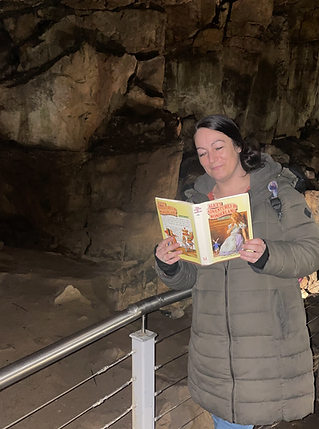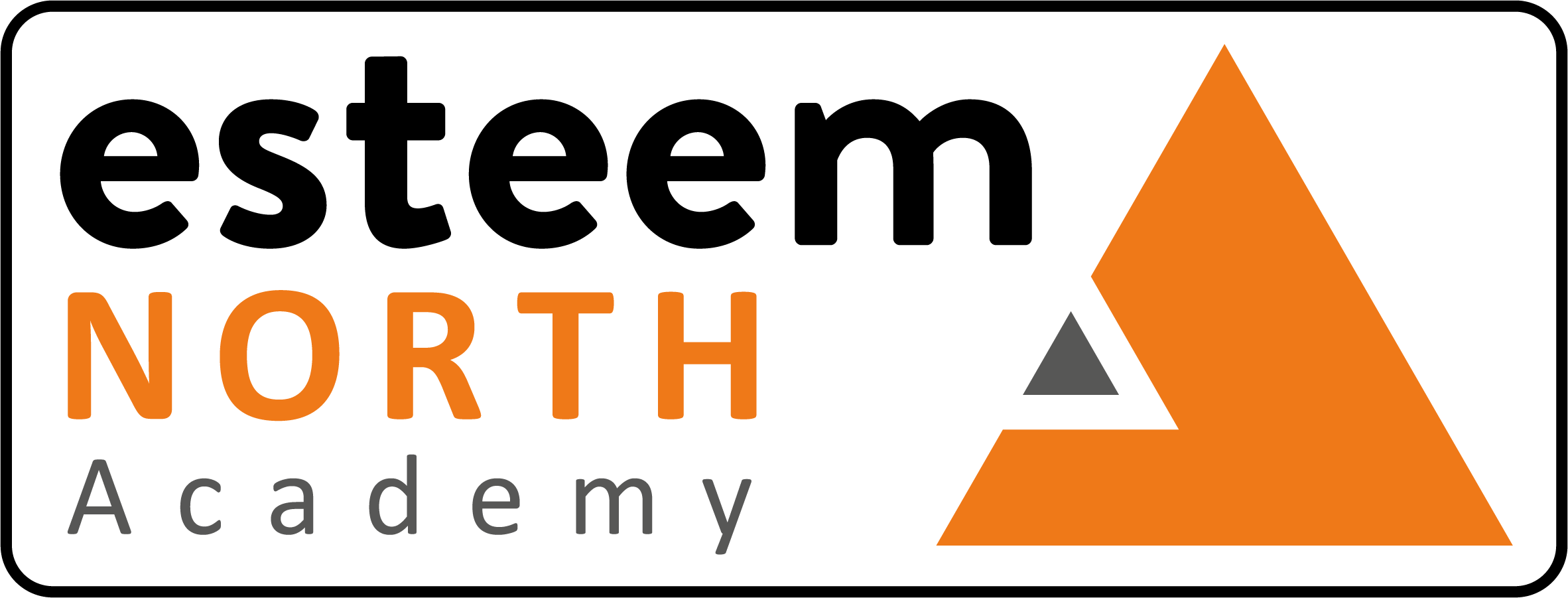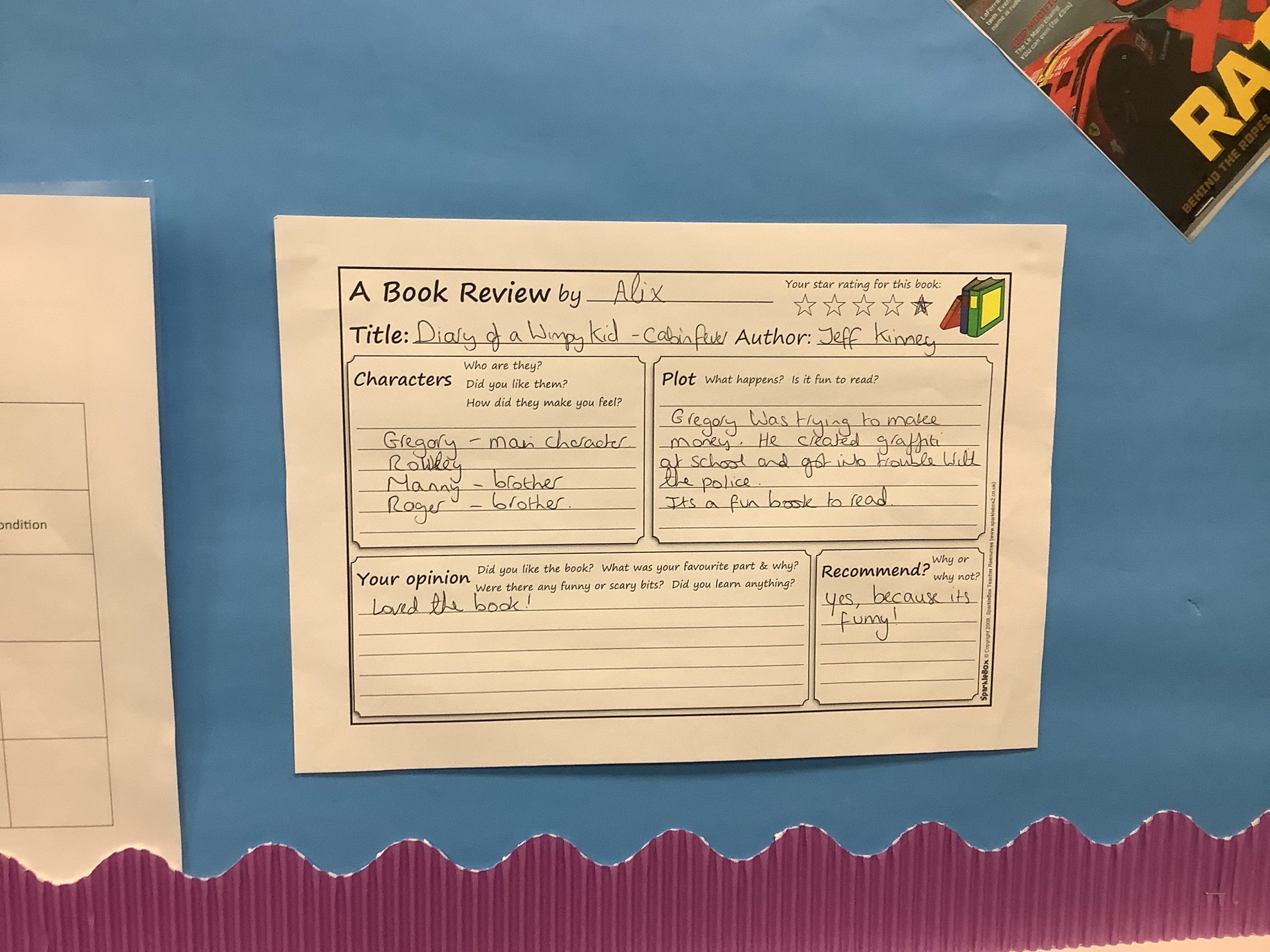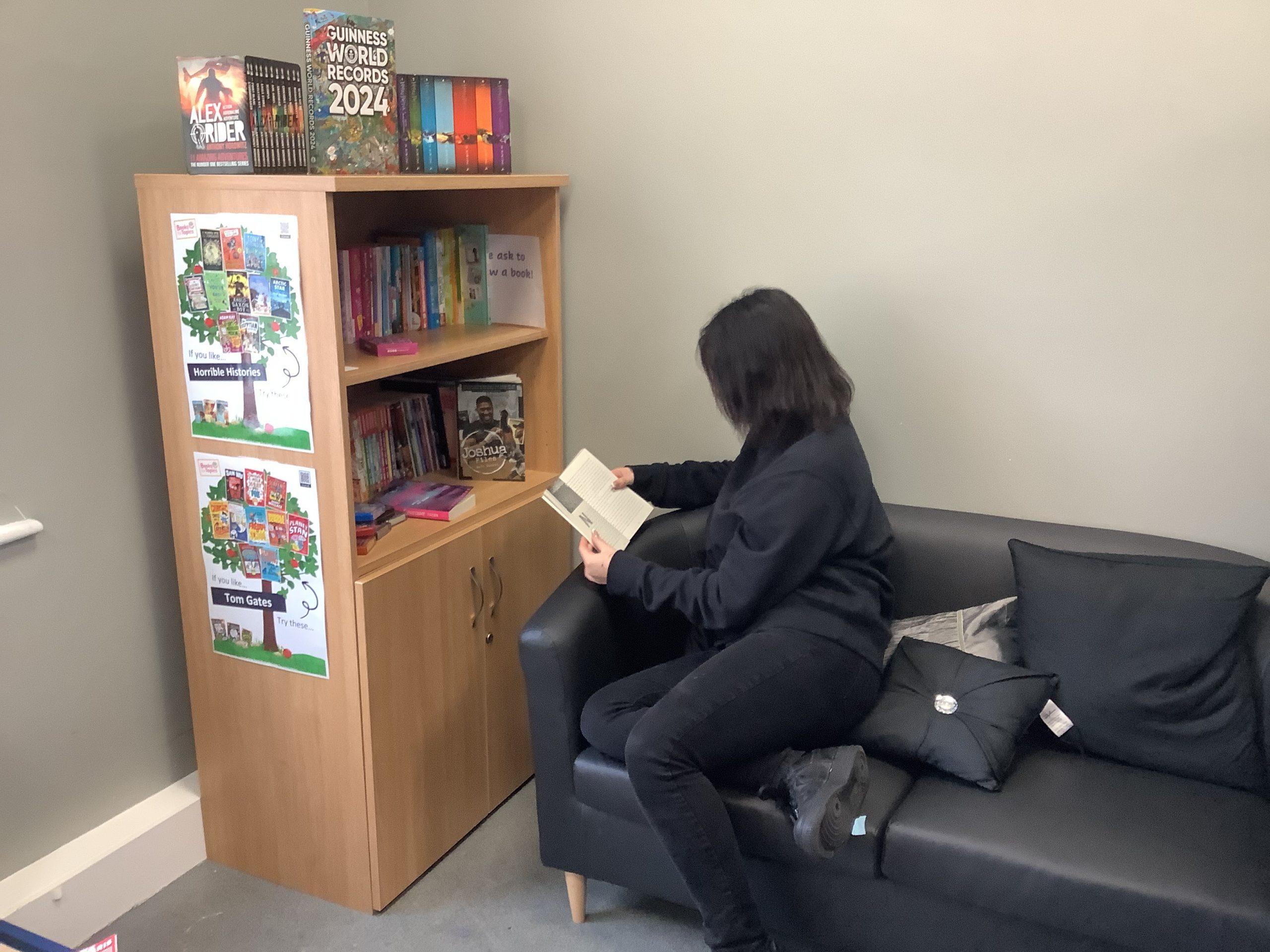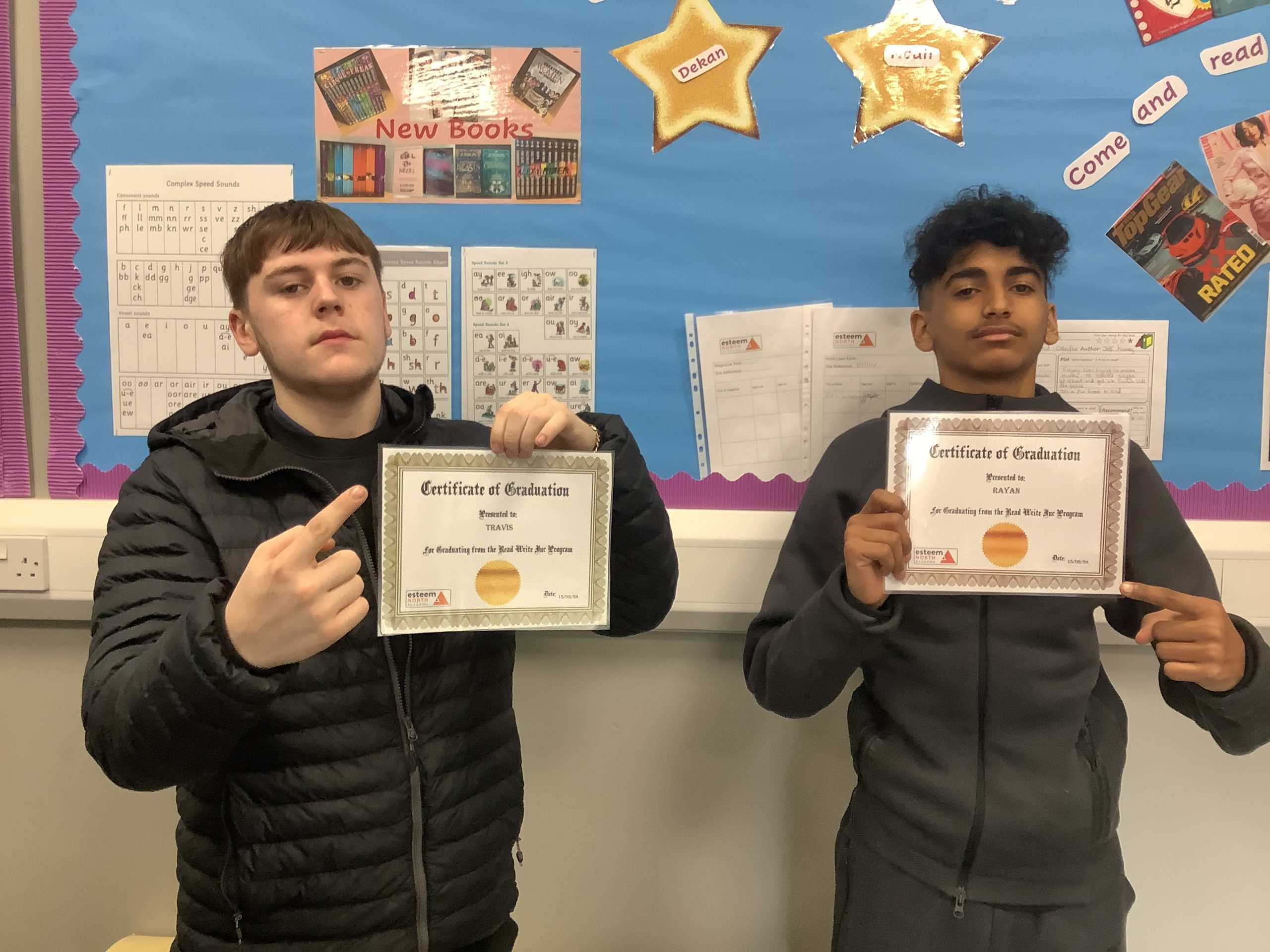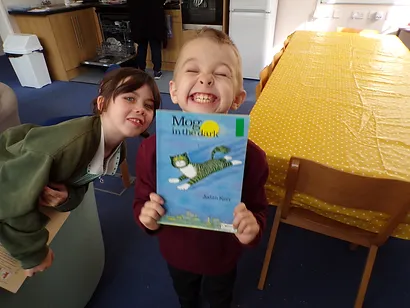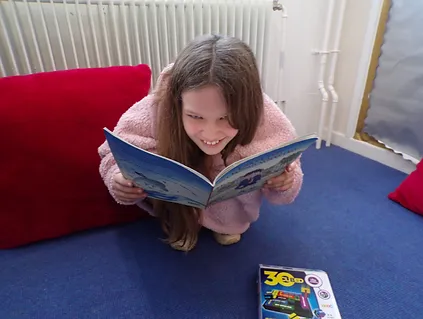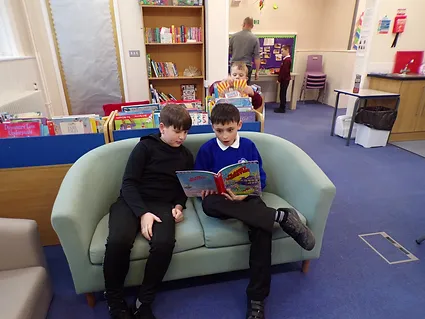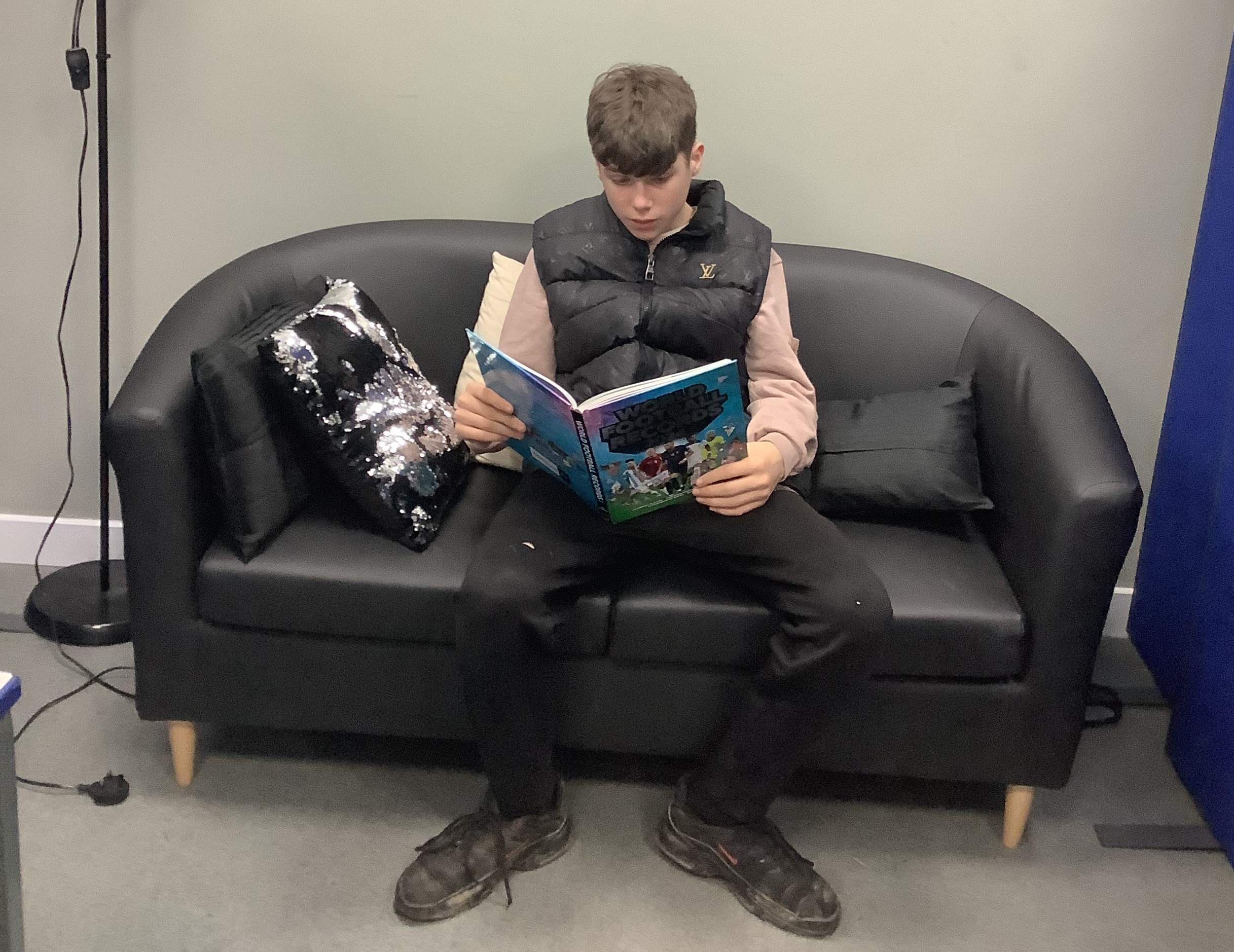Reading
Our Academy’s intent is built upon the principle that pupils will be adequately prepared for transitioning to next stage of education, whether that be a return to mainstream school or post-16. We also strive to ensure they have the reading skills for success in future workplaces.
At Esteem North we support pupils to access appropriate phonics instruction and intervention to teach skills in word reading. Our carefully sequenced reading curriculum develops language comprehension and enjoyment of reading. We want pupils to develop a love of reading and be able to understand and access more about the world in which they live, through the knowledge they gain from texts. They can also learn skills such as empathy, curiosity, imagination, social skills and emotional regulation through planning a broad spectrum of genres and authors.
At the early stages of reading the focus is on the decoding of individual words and their meaning. As reading and fluency develops then the pupils begin to focus on the comprehension of what has been read. In the Literacy curriculum, pupils experience reading in many ways to develop early reading skills, language development and comprehension of text. These include:
- Reading through play-based activities
- Symbols
- Rhyme, rhythm and poetry
- Phonics
- Role play
- Class texts
- Shared reading activities
- Developing comprehension skills
- Newspaper articles and magazine
- Reading recipes, methodologies, instructions and other text types
- Contextual understanding
- Inference and interpretation
- Language analysis
- Synthesis of idea
Core Curriculum: Reading across the curriculum and reading for all
- Pupils have opportunities to access texts which are selected to support pupils to develop their understanding of different cultures and to support their emotional and social skill development.
- Literacy teachers model enthusiasm for reading through regular conversations about reading and reading skills.
- In primary, each classroom provides pupils with a positive and pleasant reading area to allow them to comfortably explore stories and different texts for pleasure.
- Phonics is taught 1:1 daily for primary pupils who have not yet mastered all the GPCs. Our chosen SSP Read Write Inc is implemented so that phonics is rigorous and systematic.
- Primary pupils read individually with an adult on a daily basis. Reading books are chosen taking into account their phonic ability, high frequency words and their level of comprehension.
- When stories are read aloud to pupils, teachers model prosody, to develop pupils’ understanding of characters, plot and themes.
- In the KS3 English curriculum, pupils’ study one fiction text, one non-fiction text, and a range of poetry over the academic year, to give pupils exposure to a breadth of text types.
- In the KS4 English curriculum, pupils develop skills for reading including comprehension and analysis of texts to access GCSE and Functional Skills
- In all subjects, literacy including reading is planned into the medium-term plans across the curriculum, with varying opportunities to read, write and access different reading materials.
- The school plans opportunities for reading into its curriculum for all pupils.
- All pupils have opportunities to read in tutor time, lessons, and reflection time.
- All pupils can access a library on-site where there are a range of interesting and engaging books and text types to engage readers of all ages and stages. We strive for books to be appropriate for pupils’ ability, age, developmental stage and to accommodate for varied interests. Pupils are able to borrow books to read at home.
- We celebrate World Book Day as an opportunity to celebrate a love of books and explore characters through drama, shared reading, book talks, and other exploratory activities.
- ‘Sound of the day’ is embedded into briefing to upskill staff and ensure staff knowledge of pure sounds.
- All staff access CPD to continue to keep reading at the forefront of teachers and support staff’s minds and to share good practise.
Phonics Intervention: KS3 and KS4
- Following a Lexplore reading assessment, the Reading Lead will identify pupils who require phonics intervention; these are pupils who have a reading age below 9.5.
- Read Write Inc. Fresh Start assessment is then used to identify phonics gaps which need development.
- These pupils receive intensive, individual teaching of phonics.
- Phonics progress is assessed every half term to show learning of new GPCs and when to identify when to cease intervention.
Fluency and Comprehension Intervention: KS3 and 4
- Following a Lexplore reading assessment, the Reading Lead will identify pupils who require intervention to develop fluency and/ or comprehension. These are pupils who have a reading age below 9.5 who do not require phonics.
- The intervention focuses on providing learning opportunities to read through Read Write Inc Comprehension. This structure provides targeted teaching of comprehension strategies and development of fluency through guided reading.
Through access to the reading curriculum, the teaching of reading skills, and the promotion of the joy of reading, pupils make progress in their reading skills and reading ages relative to their baseline, in order to become more competent and confident readers.
DISCOVER OUR RECOMMENDED READS
Staff Reading
This is some of our staff reading in unusual places demonstrating their love of reading!



